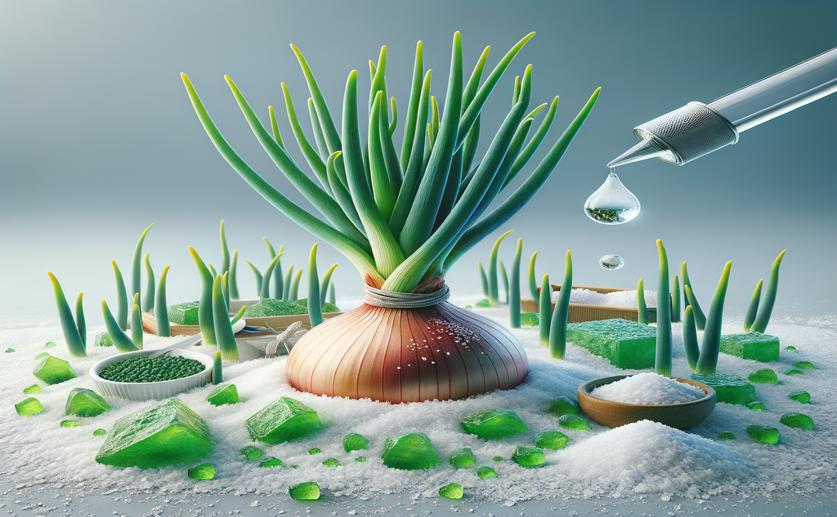
Boosting Onion Resilience to Salt Stress with Fusaric Acid
Jenn Hoskins
25th March, 2024

Image Source: Natural Science News, 2024
Key Findings
- In a Turkish study, low-dose fusaric acid (FA) improved onion plant growth under salt stress
- FA treatment reduced genetic and cellular damage in salt-stressed onions
- The study suggests FA can boost onions' natural defenses against salt-induced harm
AgricultureBiochemPlant Science
References
Main Study
1) Exogenous application of mycotoxin fusaric acid improve the morphological, cytogenetic, biochemical and anatomical parameters in salt (NaCl) stressed Allium cepa L.
Published 23rd March, 2024
https://doi.org/10.1038/s41598-024-57762-z
Related Studies
2) Fusaric acid induced cell death and changes in oxidative metabolism of Solanum lycopersicum L.
3) Modulation of NaCl-induced osmotic, cytogenetic, oxidative and anatomic damages by coronatine treatment in onion (Allium cepa L.).
4) Combined effects of brassinosteroid and kinetin mitigates salinity stress in tomato through the modulation of antioxidant and osmolyte metabolism.
5) Salinity stress induced alterations in antioxidant metabolism and nitrogen assimilation in wheat (Triticum aestivum L) as influenced by potassium supplementation.



 9th March, 2024 | Greg Howard
9th March, 2024 | Greg Howard